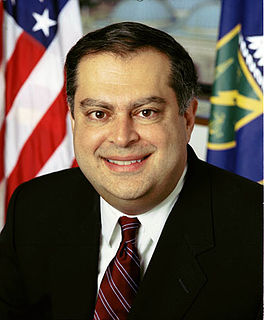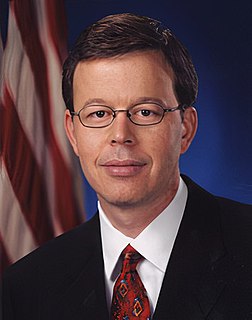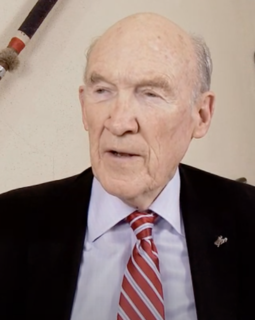A Quote by Spencer Abraham
The federal government neither has the power to site transmission lines, nor do we build them. That's done, as people know, in their own communities. The siting decisions and the permitting is done at the local level, or by state governments if it's interstate in nature. And federal government - this is one area we have no authority.
Related Quotes
But ambitious encroachments of the federal government, on the authority of the State governments, would not excite the opposition of a single State, or of a few States only. They would be signals of general alarm . . . But what degree of madness could ever drive the federal government to such an extremity.
Government is taking 40 percent of the GDP. And that's at the state, local and federal level. President Obama has taken government spending at the federal level from 20 percent to 25 percent. Look, at some point, you cease being a free economy, and you become a government economy. And we've got to stop that.
The proposed constitution, therefore, even when tested by the rules laid down by its antagonists, is, in strictness, neither a national nor a federal constitution; but a composition of both. In its foundation it is federal, not national; in the sources from which the ordinary powers of the government are drawn, it is partly federal, and partly national; in the operation of these powers, it is national, not federal; in the extent of them again, it is federal, not national; and finally, in the authoritative mode of introducing amendments, it is neither wholly federal, nor wholly national.
In Newark, we see a problem and want to seize it, but we run up against the wall of state government, the wall of federal government that does not have the flexibility or doesn't see problems, even. At the federal level, it's often a zero-sum game: If you win, I lose. At the local level, it's just not local that. It's win-win-win.
It is important to strengthen the State governments; and as this cannot be done by any change in the Federal Constitution (for the preservation of that is all we need contend for), it must be done by the States themselves, erecting such barriers at the constitutional line as cannot be surmounted either by themselves or by the General Government. The only barrier in their power is a wise government. A weak one will lose ground in every contest.
It is a travesty, in my mind, for the state and local governments on the one hand to expect the Federal government to reimburse them for costs attributable to illegal immigrants, when on the other hand the State and local governments prohibit their own law enforcement and other officials from cooperating with the Immigration and Naturalization Service to locate or apprehend or expel illegal aliens.
Strictly enforce the scale of "fixed responsibility." The first and foremost level of responsibility is with the individual himself; the second level is the family; then the church; next the community, finally the county, and, in a disaster or emergency, the state. Under no circumstances is the federal government to become involved in public welfare. The Founders felt it would corrupt the government and also the poor. No Constitutional authority exists for the federal government to participate in charity or welfare.
[Before the Civil Rights Act of 1964], many governments in southern states forced people to segregate by race. Civil rights advocates fought to repeal these state laws, but failed. So they appealed to the federal government, which responded with the Civil Rights Act of 1964. But this federal law didn't simply repeal state laws compelling segregation. It also prohibited voluntary segregation. What had been mandatory became forbidden. Neither before nor after the Civil Rights Act were people free to make their own decisions about who they associated with.
The federal government overrules state laws where state laws permit medicinal marijuana for people dying of cancer. The federal government goes in and arrests these people, put them in prison with mandatory, sometimes life sentences. This war on drugs is totally out of control. If you want to regulate cigarettes and alcohol and drugs, it should be at the state level.






























